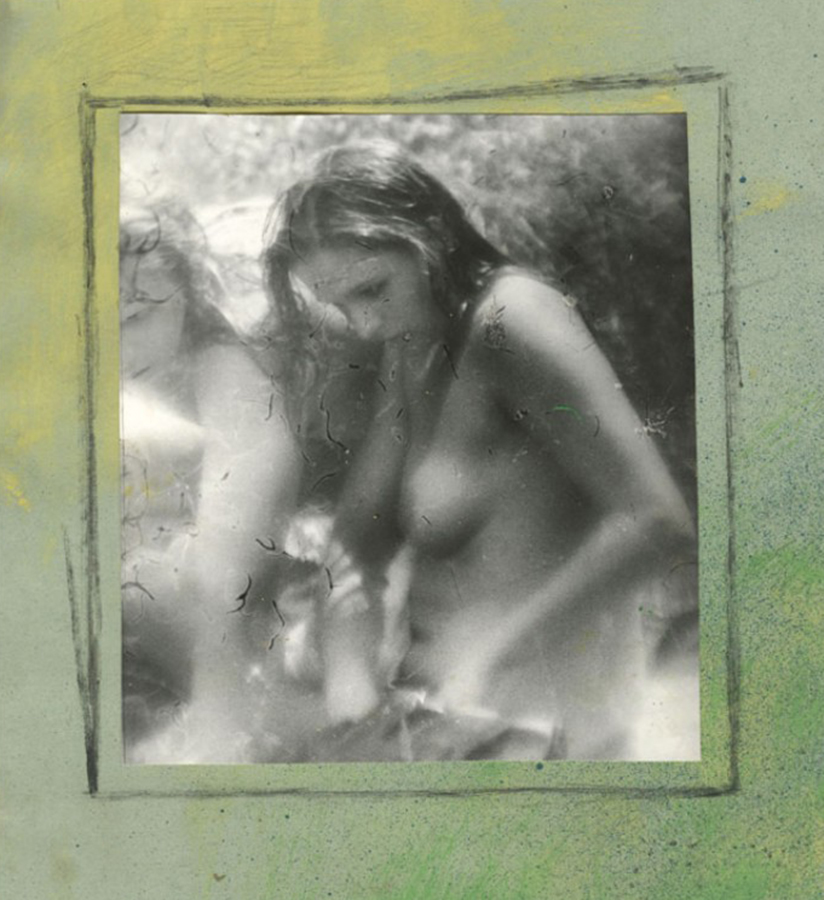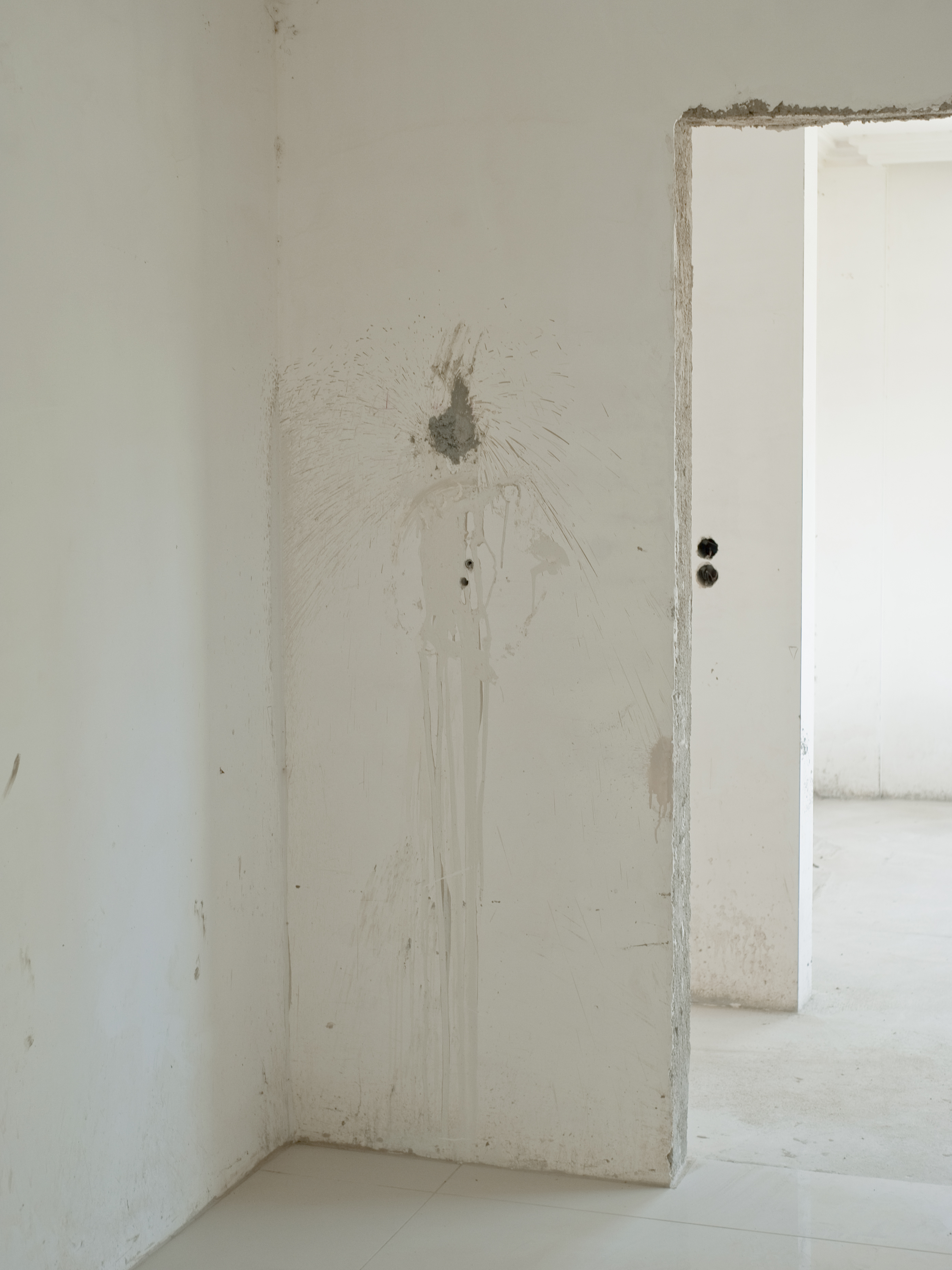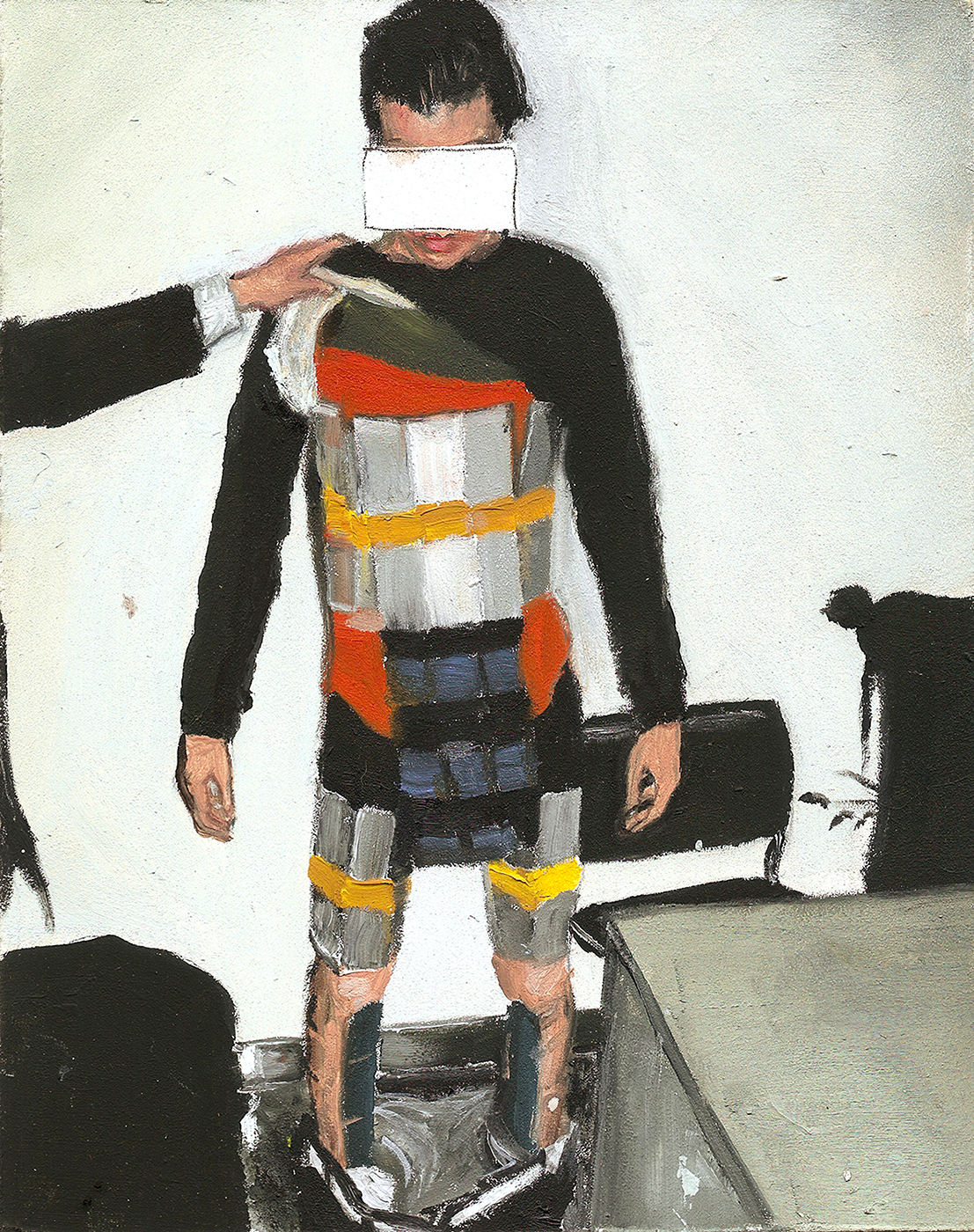Zeynep Beler, an artist who uses photography as a medium, paints photos, especially Instagram photos in her recent works. And she does this by using the effects of camera lens, flash, light etc.
The main topic of our conversation with Beler is fetishization of camera and photographs.
On The Fetishism of Camera
Zeynep: A camera can be a tool for showing one's status. I find arrogance in every photographer (and even people who are not into photography) who thinks like "What I'd do with that camera!" There is a connection between the identity of the photographer and the camera s/he carries. If you see me carrying a Contax G1 you can more or less tell what I am after. As for someone who has a medium format camera, you can tell s/he is doing landscape, advertisement or architecture photography.
Şener: If s/he has a 5D Mark III you think "S/he has money," and if s/he has a medium format camera it could be even better. We always indicate the technological stuff but analogue cameras can also be used because they are trendy. All in all, we have this notion of fetishism of the camera.
Zeynep: Right, and people don't always buy cameras according to their needs, they can buy cameras with lots of functions which they won't be using. So, why do we care? I guess you have this feeling like when someone who is a university student buys Mark III just for a hobby when we don't have the means to buy it.
Şener: Like the guy doesn't need a camera like that but just to adapt to the status, he prefers to go around with that camera. Otherwise, a mobile could also be enough.
Zeynep: But if they have the financial means everybody would buy it. You never say this: "This camera has functions which I will never use, so I just won't buy it." You just refuse with the right hand and take with the left. Besides, you don't quite know, they don't tell about the features that will come in handy for you, insignificant features like how much megapixels the lens is instead of who produced it or how much zoom it has...I guess I bought and sold 20 analogue and 10 digital cameras just to decide what I really want.
Şener: It's how sales marketing works, it encourages you to buy that product. Just like buying some dishwasher, a camera is also multi-functional, but you only use the same type of program.
Zeynep: And maybe you can do more creative stuff with a pinhole camera.
Şener: Exactly, it is the basic version of camera, which you can make out of a cardboard and without much cost. There is a photographer in Romania, Miroslav Tichy, and he makes his own cameras using wood, the bottom of a glass, reels, stuff like that and takes photos, especially young girls.

Miroslav Tichy
Zeynep: I guess you should be an idler like me to find out what you really want. I was invited to a lecture in Bilkent University on the occasion of some exhibition I did in Ankara. It was a technical lecture. The professor was persistently asking me which camera I use and which camera I would recommend. And I was saying you can just take pictures with IPhone, it has to do with your point of view. And I was giving advises like the only thing you have to do is to just take photos with ever-focusing on it. And he kept correcting me saying "But you have a camera as well don't you, what was it, a D700?"
Şener: Technical education is about cameras and their basic features, so when you say IPhone you just take the bread out of his mouth.
Zeynep: Yes surely, and the main point is the technical stuff. Like panning, macro lens, and if you don't have a macro lens how will take photos, and that's another story. Like depth of field being shallow or deep. And if you don't have this numeracy and if you just don't understand when someone explains you and learn by practice like me, it is just that. Though, I used to think in these terms, like numerical and artistic skills are completely different. But actually it is an imposition we are taught by the educational system. But my numerical skills lied fallow cos I decided I would become an artist and I understand stuff like that when someone explains it to me. Now I can understand in logical terms but they are still abstract to me. I understand technical stuff as long as I use the camera and get the results.
Şener: Even though I personally criticize photography lectures or institutions encouraging people to buy expensive cameras, I can't help asking if we fall into that same fetishism we are criticizing.
Actually, what I wonder about is this: We have talked about different cameras and both you and me, as people who have tried and liked them all, we find good qualities in every one of them. On the other hand, we also talked about different cameras and say those cameras are used to feel that you belong to some specific class in hierarchical terms, adapting to some trends. So, when you see everything in these terms, won't the photographers' disapproval in terms of cameras end or won't they be reconciled somehow?
Zeynep: There is also a solidarity within the photography circle, but it is a mutual cooperation like "you have to have your film developed there, this person has a scanner," stuff like that.
Şener: Exactly! For example, everyone suggest the same people for camera repair. Everyone likes Uncle Şahabettin but do the people who frequent him like each other?
Zeynep: Actually, it would be better if there is some terminology between these people.

Konaklar serisinden, 2014, Zeynep Beler
On The Speed at which Photographs Are Forgotten
Zeynep: I have read this in some interview, a photographer woman says something like this: "I am very curious about people and photography is just a tool for me. Cos when I approach some people with a camera in my hand I have some excuse. I say 'Can I take a photo of you?'" or so. And I just used to feel quite the opposite, I want to take photos but I don't want to go near people. I just want to take their photos and run away, but it is not ethical for sure. Years ago, I would like to do a series in Kurtuluş. And most of the people I approached got away when they saw the camera. I was so demoralized, I just went back home and sat. Cos people were getting really nervous, they asked stuff like "Are you from the municipality?" Everybody had something to hide. So it was really hard.
Şener: This is also an interesting subject, actually I think photography pushes people away. For there is a kind of intervention there, a distance.
Zeynep: I guess this also needs time, to find what you want to photograph just as finding the right camera...
Şener: This is also a search, you can just start from your acquaintance, a seagull or a landscape...
Zeynep: And your need for a camera also depends on it. You just don't walk the streets with a Mamiya.
Şener: I guess, this is also another reason why your mobile phone is sufficient for you for now.
Zeynep: The beauty of mobile phone is that you are not comfortable with usual cameras, you always feel guilty somehow. But when I just go and take a photo with this, no one finds it odd, and I make myself comfortable as well. Cos that person knows, or rather thinks, that photo will be uploaded in Instagram, only 3 people will see it etc...Taking photos is a very common thing, people don't find it odd.
Şener: Instagram doesn't become materialized for people, it doesn't qualify as something permanent, but it is just thought as a medium of fast consumption. And from this point, we can return to our initial subject. Fetishization of the photograph.
Zeynep: But nothing gets lost in the internet. I guess, American Congress Library keeps record of every deleted tweet. Even if you delete one tweet it is put on record. For these are all history and in the future, we can just read Whatsapp messages of famous people in a book just like we can read their correspondences now.
Şener: Sometimes I hope they won't be published into a book. All those abbreviations, smileys, emoticons etc.
Zeynep: There will also be an editor for it and those messages will be made presentable. I have this in mind; technologies are produced depending on the era. The first one is writing. And now we are keeping record of that and return to oral culture again. Gradually, material technologies are disappearing. When digital photography emerged for the first time, there used to be an argument like this: "Hey, this is a completely different medium, besides it is not photography. For what you call photography consists of 3 phases. You take the photo, there is the negative and you have the darkroom. What you do without those chemicals is transformed into digital data and then image, so I can also make it into a music. That's why it is not photography in the real sense." There have always been discussions about the essence of photography. And now, digital photography is considered as the natural continuation of the medium itself. Cos everything in our lives start to exist in the digital environment. We just adapt to its insubstantiality, but we haven't internalize it. That is why we need a fetish, we need to hold some object in our hands.
It's the same when I am painting. Seeing a surface is one thing, reflection of light to your face is another. They are like ghost images.
Şener: They turn into inordinate, disproportionate things which you cannot really estimate where and how to see, in which size or color.
Zeynep: I think we haven't evolve that much yet. We don't have the ability to envision the 3 dimension without being empirical. Or we don't have tissue memory, we have to touch things to comprehend better.
Şener: On the one hand, this can serve memory, on the other possession and belonging is your wish.
Zeynep: It's about the relationship between memory and value. You keep your photos in your mobile, but when you drop it to the toilet you can feel sorry for your photos. You are recording our conversation now, and if you lose it you'll be irritated.
Şener: I will tell you something I find interesting. My mother took a photo of my grandpa before he died with her old mobile. The mobile has a small-size screen, low resolution, so we couldn't transfer the photo. Now my mother keeps that mobile just for that photo. Just like a frame, like a printed photograph. Just because of that photo, the object itself becomes valuable for my mother now.
Zeynep: When I was on holiday, my mobile was stolen. It was really old actually, I had to replace it. And I took only one photo. It was the most beautiful holiday in my life and I took a photo with my friends to remember it and I was really upset when it was stolen. I wished it was stolen before I get that photo...
Besides, what we replace the memory with, you remember everything about the holiday or you remember how your grandpa looked, but you want that substantial thing. Cos it is like they are parts of the memory as well.
Now, it may sound a bit ontological, they say Indians have this superstition when you take a photo of them a part of their soul dies away. It sounds like an urban legend but actually, recording someone's voice and image is a crazy idea! We are not aware of this cos the idea is so familiar to us, but it's like parts of those people.

Iphone Smuggler, 2015, Zeynep Beler
Zeynep: Why is Mad Max so good? Cos the director doesn't do the special effects on computer. The cars are real, most of the effects are real, there are very few green screen footages, and so it makes the movie much more thrilling. Because human mind can understand the difference between the digital and real special effects. So, it is a very important element in the movies that might penetrate you.
Like I said, holding the photo in your hand and seeing it on a screen has to do with that. One seems unreal, the other, even though it's a 2 dimensional image on paper, is more effective. And this might seem as a memoir.
Şener: Maybe it is the same thing with the printed portfolio, seeing the printed photo in an exhibition or publishing it into a book. Exhibition is a transient thing, so are the digital screens.
Zeynep: Book format is really convenient for photography, you can read the whole thing as a story.
On Photographer's Search for Photographs (Two Missed Calls)
Şener: So, why does photography imitates painting, why people want to hang it on the wall like a painting, but one can also create a story. It can be like literature as well. And I actually don't like the saying "photography is writing with light," cos there was this need for giving a reference to some field of art to be recognized and this understanding still continues.

Zeynep: Photography escapes definitions, for me it is beyond the point, but like you said, why people want to hang it on the wall? If we look from the collectioner or commercial side, the collectioner wants something to hang on his wall, that's why there were a lot of discussions about Salgado criticizing him of aestheticizing the pain of people. But people want to see a scene on their walls rather than some plain documentary thing. That's why photographs imitating painting in aesthetical terms have more chance to be sold. Think of the most expensive photograph that has been sold, it's Andreas Gursky'. It is a giant painting.
Şener: So it is a hyperrealist photograph, in a giant format...
Zeynep: Isn't it also a kind of painting, like you are gathering different photographs in a digital environment...
Şener: Some might argue against it, but I think Instagram and the fact that people can take photos with their mobile phones will make this distinction easier. Photography is a part of everybody's life, just like writing. But just as our shopping list is not a work of art (though it can also become one) I guess, you have some distinction in photography. The fetish changes from those who take photos to artists and to viewer. They take photos as well, Instagram is a kind of fetishistic domain.
Zeynep: What distinguishes the artist from the people taking photos as a hobby? It is getting more and more democratized. On the other hand, everybody being a photographer pushes the artists to different solutions. Fuck knows, photography without a camera, streetview…
Şener: You are saying it has been photographed before.
Zeynep: 50 years later, photography could turn into something completely beyond our imagination. And we might call it another name.
Şener: Surely, if we won't say something like "Photography is Instagram, come on!"
Zeynep: There will be a new generation of photographers and they will call us "Forget the old farts!" I find it healthy that a new generation hating the old one. It indicates progress.